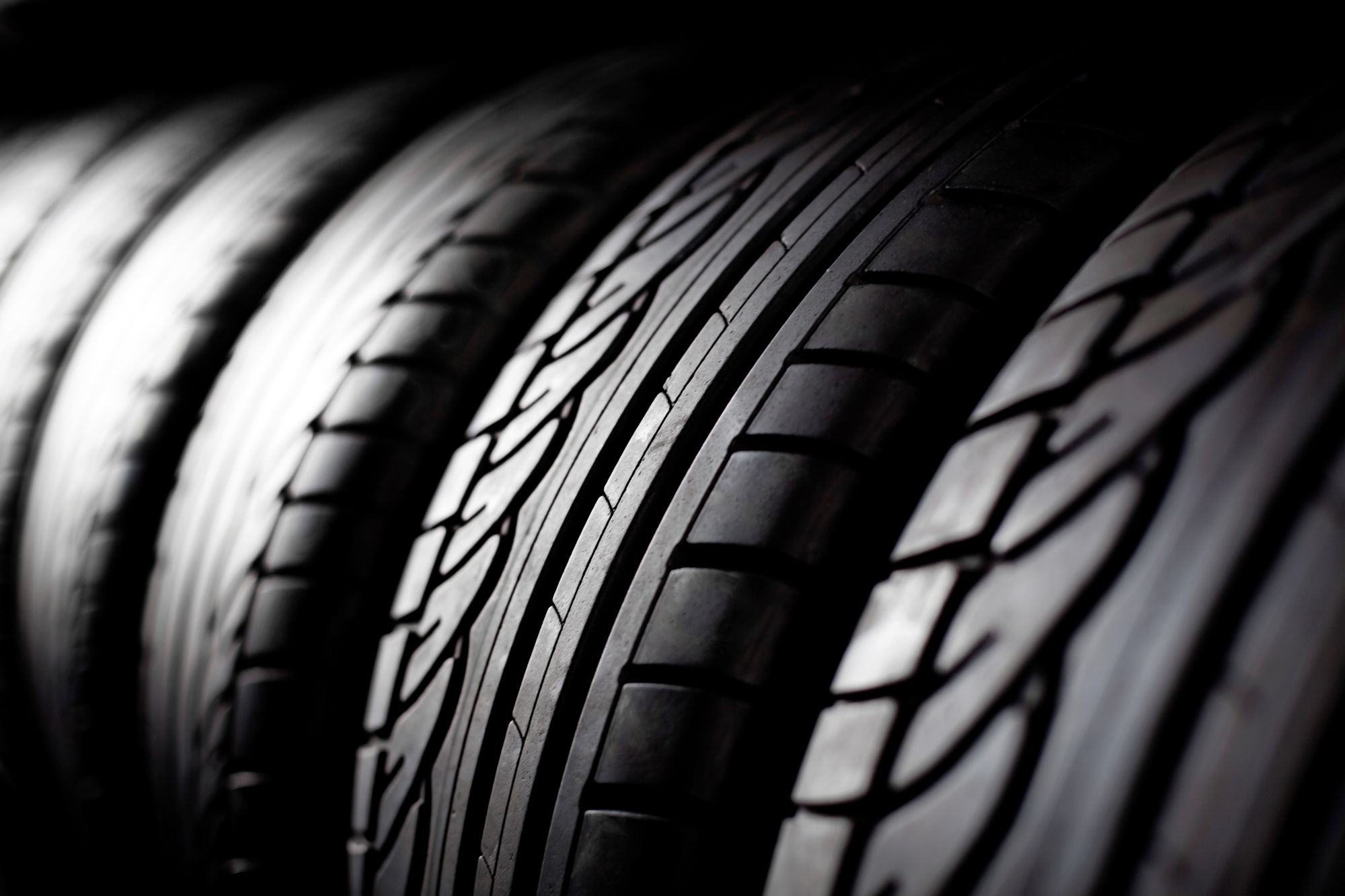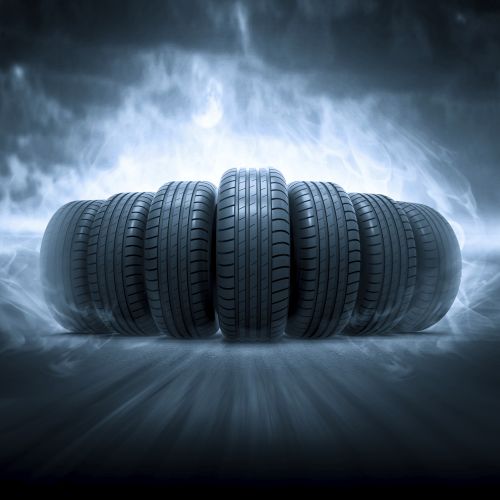
Top Tier New Tires in Louisville
The tires on your vehicle impact almost every element of its operation including performance, gas mileage and safety. Whether you need a tire evaluation, tire repair or brand new tires, the professionals at Supreme Automotive Service & Repair in Louisville can help you!

Purchasing New Tires
At Supreme Automotive Service & Repair, we make sure to stock precisely the right tire that fits your car or truck in a style that suits your preferences. No more aimlessly staring at a wall of new tire options. Our tire specialists will assist you in selecting the perfect set of new tires every time.
All Terrain Tires
Known for their robustness, all-terrain tires provide excellent traction and performance on both paved roads and rugged landscapes, ideal for diverse driving needs from daily commutes to adventurous off-road excursions. Read More
All-Season Tires
Designed for year-round versatility, all-season tires offer balanced performance in various weather conditions, making them suitable for vehicles in regions with mild winters. They ensure dependable traction in wet conditions and smooth handling on highways. Read More
Snow Tires
Optimized for cold weather, snow tires provide enhanced traction in icy and snowy conditions. Their deep treads and unique siping grip snowy surfaces effectively, while a broader tread footprint distributes your vehicle's weight evenly for improved stability. Read More
Touring Tires
Touring tires combine comfort and performance, offering smoother rides and responsive handling. Their symmetrical tread patterns ensure effective traction in both wet and dry conditions, while a durable rubber compound extends their lifespan. Read More
Prioritizing Your Safety at Supreme Automotive Service & Repair
At Supreme Automotive Service & Repair, the safety of our customers takes precedence above all else. We are dedicated to ensuring that you reach your destination safely and reliably every time you hit the road. One critical area of concern for the vehicles that come through Supreme Automotive Service & Repair is the condition of their tires.
Your tires serve as your vehicle's only contact point with the road. When they do not perform their role correctly, all the research and safety testing that went into your car's design may not be sufficient to keep you safe. In the sections below, we provide essential information about your tires and how to recognize when it's time for replacements.
The Dangers of Old or Worn Tires
As mentioned earlier, your tires are a crucial component of your car or truck. If you've ever experienced the loss of control while driving, you understand how frightening it can be to feel powerless inside a two-ton metal vehicle.
Driving with tires that are either too old, improperly inflated, out of balance, or unsuitable for current weather conditions can lead to a potentially catastrophic situation during your journey. Your tires were meticulously designed with a specific purpose in mind, and using them improperly can result in sudden and disastrous consequences.
The Importance of Tire Inflation
Detecting low tire pressure is relatively straightforward. If you notice that your tire appears wider where it makes contact with the road, it's a clear sign that it requires more air.
Driving on under-inflated tires accelerates their wear due to uneven sidewall pressure, potentially leading to tire shredding. Moreover, low tire pressure negatively affects your vehicle's fuel efficiency.
On the other hand, excessive air pressure in your tires is also unsafe. While the likelihood of a tire bursting upon hitting a substantial pothole is minimal, overinflation reduces the size of the contact patch, resulting in reduced grip and control over your vehicle. The recommended tire pressure is typically found on the tire's sidewall, making it easy to determine the ideal pressure for your vehicle.
We offer most major brands of tires. These are a few of our preferred brands.
FAQs About New Tires
But Aren't New Tires More Expensive?
While a set of new tires may appear costlier on the day of installation, factoring in Supreme Automotive Service & Repair promotions or manufacturer rebates often makes the cost of new tires only slightly higher than purchasing used ones. Furthermore, you can't surpass the unparalleled confidence and safety offered by new tires! The cost of new tires also encompasses the manufacturer's warranty, which, in most cases, covers premature tread wear.
Can New Tires Lead to Fuel Savings?
Opting for fuel-efficient tires might make your new tires more budget-friendly than you think. Numerous tire manufacturers are developing new tires that can pay off at the gas pump. If you have a lengthy commute or enjoy traveling, discuss this option with our tire specialists.
Fuel-saving tires still provide dependable traction in rainy weather and a comfortable ride around town. Some manufacturers even claim that fuel-saving tires can save up to 2,600 miles' worth of gas over the lifespan of a tire set.
How Long Do New Tires Typically Last?
On average, new tires have a lifespan of about 3 to 4 years. If treadwear is a concern, consider rugged off-road or on-road terrain tires. Many of these tires are built to provide a smooth ride during leisurely cruising but transform into durable workhorses when it comes to hauling or towing.
How Long After New Tires Should I Get an Alignment?
Replacing tires throws off your car's delicate alignment, impacting handling and tire wear. That's why a post-change alignment, preferably a 4-wheel one, is recommended. Additionally, regular alignments every few years, regardless of tire changes, ensure optimal safety and performance.
To learn more about our Tire services, call us at 502-376-0777 or request a quote by clicking below:
Request Quote
Discover More About Tire Repair/Purchasing New Tires At Supreme Automotive Service & Repair in Louisville
Inspections & Emissions
Brake Repair
Car & Truck Care Services

Contact Us Today!
Got questions? We've got answers! Drop us a line, give us a call, or even stop by. Our team is eager to help you with any auto repair needs you have. Let's get you back on the road safely and swiftly!
What Our Customers Are Saying
We needed our car looked at on short notice and got us in without any wait. They took our number can called us back within two hours with the repair completed for a fair price. They explain in detail of the fault and had the vehicle ready for pickup on the same day. They were kind and straightforward with expectations.
My car broke down three miles away from the shop a few days before Christmas. I put my trust in supreme auto and they got me all the way together. They towed my car to the shop and diagnosed the issues. I was a little on edge at first but they promised to do a good job at a fair price. They did I had an Lyft drop me and my family off at the shop. We drove away with no issues . I would recommend Still do your own research.
They treated me with care and handled my car very carefully and professionally. Exceptional customer service and very detail oriented. Love the service!
Supreme Auto on Dixie Hwy is an awesome place to get vehicle repairs done. I've never been overcharged and it is the only place I trust and depend on for my car repair needs!

Savings & Specials
Discover the latest deals and discounts we offer. Take advantage of our seasonal promotions & coupons and find out how you can save on your next visit to our shop.

















